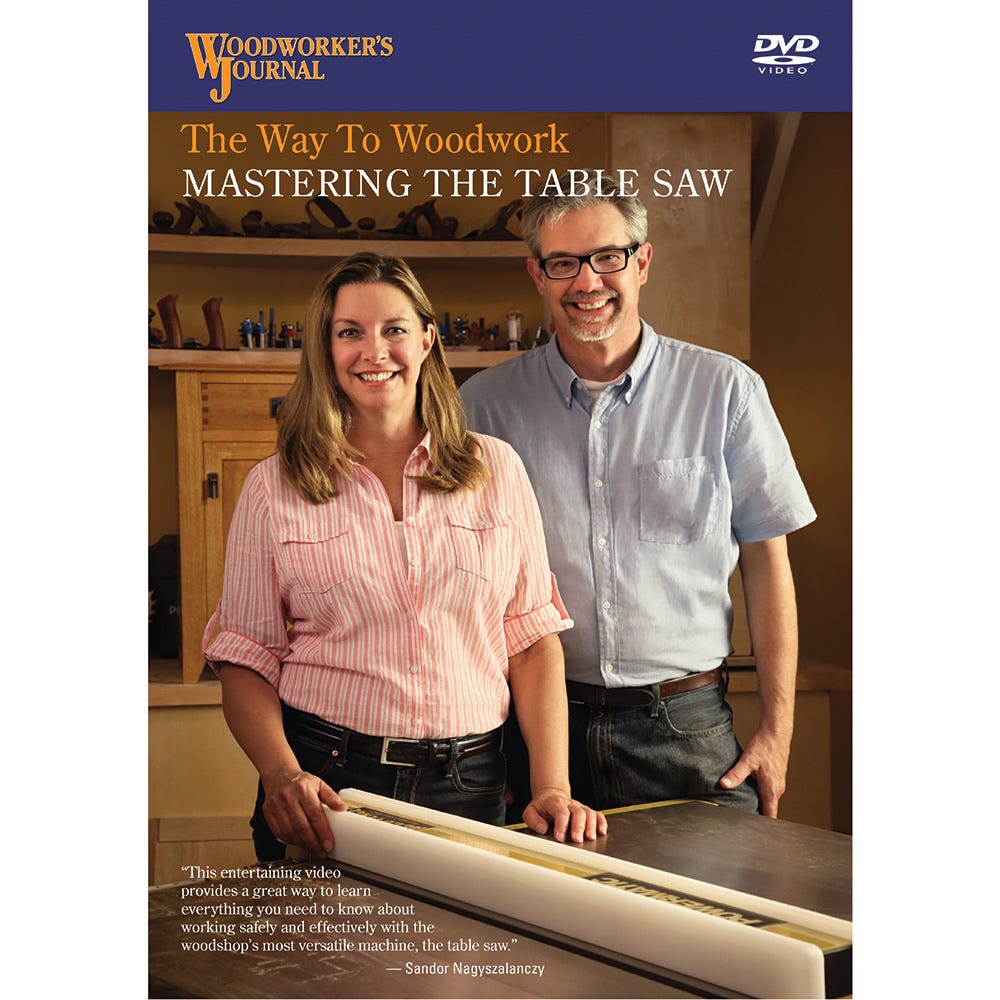
A Comic View of Our Favorite Feature
This bit of commentary about our typo corner was funnier than most of the typos we run, proving that our readers are indeed a witty bunch. – Editor
“I am a professional typesetter. It is my responsibility to see that an article has not only been spell-checked but proofread for typos that result in perfectly acceptable words. At night, when I’m off the clock, I spell like shirt.” – George Kosiara
Accuspray and 3M
“I enjoyed the article on Accuspray and 3M. I hope the synergy will improve their respective lack of support and service. I have been unable to get parts for my Accuspray turbine and gun in Texas for three years. I hope that it improves their ability to handle their loyal but frustrated customers.” – David Hughes
Doug Bennetts
“I was impressed with the article about Doug Bennetts. He is a very real and identifiable person to me as I also teach kids. I agree that there is little that can stop a motivated kid. This is my last year teaching as I am moving into woodworking full-time. I will miss many of the kids, and if we hire more people, it will probably be from high school. They are teachable, they can have the highest quality workmanship, and someone really needs to take interest in them.” – James Crane
“At 67 years of age, I can still remember my shop teacher in Jr. High. Thanks for the great story.” – Richard Gerth
If it’s Not an Acronym, What is It?
“According to Merriam-Webster, an acronym is defined as ‘an abbreviation (as FBI) formed from initial letters.’ So MDF is properly an acronym.” – Nick Kucharewski
Not everyone agrees, though. – Editor
“To refer to something by the initials, such as MDF, is to initialize, and the resulting term is an initialism.” – Charles Wiggins
It did not escape our notice that even our spell checking program does not recognize the word initialism, but Charles was not the only one who brought the word to our attention. – Editor
“MDF is an initialism. While some scholars distinguish between initialisms and acronyms, in general use they are all called acronyms.” – Henry Ray Wengrow
In the end, it turns out that we were all right. – Editor
“Merriam-Webster’s Collegiate Dictionary defines initialism as: an acronym formed from initial letters. So, although MDF is an initialism, it is still an acronym, just a special type of acronym. I hope this makes everyone happy, because everyone is right.” – Gary Riegelsberger
Yep, that makes us happy. – Editor
The Green Wood Controversy
In the last issue, Rob sparked a huge response from our readers by asking “Do you take the time to consider the environment when you are shopping for wood, and do you think it makes a difference?” This first letter focused on recycling. – Editor
“I am currently working on a thesis that centers on the green wood topic. Construction and demolition waste fills over 40 percent of the landfills in the U.S. We as individuals are responsible for a small portion this waste. Corporations and business contribute the mother lode. Many countries (Germany, Japan) have almost eliminated CandD waste completely, but even if everyone in the U.S. were to recycle everything in their waste stream, it would only reduce the waste by two percent. In many areas where citizens are forced to recycle, business is not. Business needs to take up the mantle of “Industrial Ecology” being practiced throughout Europe and Canada.” – Damond Morris
Most others addressed the idea of sustainable forestry. – Editor
“Green wood is a great way of making sure that we have wood for tomorrow.” – John Tosh
“I have to agree with you 100 percent. I’m not a tree-hugger (sorry for the pun), but when you can do your bit and don’t, that’s different. As Jesus Beita said, ‘Only when the last tree has died and the last river has been poisoned and the last fish has been caught will we realize that we cannot eat money.’ Keep up the good fight!” – Steve Clairman
“I’m a ‘green’ woodworker, and I like to think while that may have only a minimal effect on the environment, it has plenty of effect on the soul.” – Patrick Furlong
“I agree completely with your concerns. It is nice to know there is something I can now do to help preserve the woods, trees and nature we all take for granted.” – David Emmerling
“Given the proper information, no responsible woodworker would use anything that isn’t green wood. What is lacking is a reliable grading system so that buyers can make informed choices.” – Ralph Brearey
“I agree that we should avoid using wood from sources that are not sustaining their forest by re-planting. Any wood imported into this country should have a certification that accurately defines the wood as being from a renewable or non-renewable source.” – Rich Flynn
“Anything that helps has to be a good thing. I do remember reading a statistic some years ago that the majority of the old growth rainforest wood was being sent to Japan as plywood to be used in concrete forms. That’ll make you sick.” – Roger Feeley
Others suggested that the idea is hardly new and that industry has already taken up the cause, but for more pragmatic reasons. – Editor
“I have no real problem with the idea of sustainable forestry, but I don’t really think that’s anything new. Suppliers of building supplies already have a powerful incentive toward sustainable policies in that simply cutting down trees without any plan for renewal would lead to the end of the industry, and that’s not in anyone’s interest, least of all the timber and wood industries.” – G. Andrew Duthie
“The major forestry companies in the Pacific Northwest have been practicing green for about 40 years by replanting more acres than were harvested each year. That is the only way they will have any product to work with in the future. Reforestation is an ongoing way of business in the Northwest. Thanks for a great publication.” – Michael Streight
“Logging in the U.S. is a business and today is managed as a business with expectations for the long term. Loggers are farmers. They are harvesting a crop that, with good management, is very renewable and will continue to be for many years to come. Mismanage, and they lose their next crop.” – Wayne H. Tinker
Some advised that Europe has already pointed the way. – Editor
“I was surprised to read in your e-mail that you mention ‘there is a trend towards using green wood.’ This trend is already a long-time fact over here in Europe and in The Netherlands where I live. The FSC – Forrest Stewardship Council is controlling this. Many companies use in their advertising that they use FSC certified wood. Shops where wood is sold usually only sell FSC wood.” – Paul Sanders
“Here in Germany we take environmental issues very seriously, and we recycle just about everything. It’s also law here, too. We believe firmly in everyone doing their fair share and take the attitude that every little helps.” – Ian Nicholls
A large group pointed out that it makes good business sense, largely because consumers will pay for it. – Editor
“Encouraging woodworkers to purchase sustainably harvested wood makes great business sense as there is a growing market demographic of consumers concerned with purchasing sustainable products. Going green is a great way to add value to your products. Also, it only makes sense that woodworkers as a group would be interested in long-term sustainability of the natural resource that they utilize to make a living. All efforts, no matter how great or small, matter.” – Lisa Swallow
“The tide of woodworking and construction has already turned at the hands of the consumer. On an international scale, lumbering from sustainable forests has been a huge industry for more than a decade. There are many dozen species on the market that weren’t considered marketable as recently as a decade ago. Consumers vote with dollars. If we weren’t actively seeking out green materials, no one would be selling them.” – Chuck Kubin
Not surprisingly, some were outright suspicious, or at least doubtful. – Editor
“Just what is ‘an environmentally sustainable manner?’ How do you really know if what you are buying is really harvested in an environmentally sustainable manner? There are about as many ideas as to the best way to manage forests as there are conservationists and loggers. As far as relying on the retailer to identify their product as green, most lumber retailers I have had any experience with, including the box stores, will put whatever sign on their product they think they can get away with that will increase their profit margin.” – Henry Rowe
“Sounds like an excellent way for the sellers to get a price increase. One of Tim Harford’s essays was on a similar subject involving ‘green coffee’ which was sold at a premium price to supposedly pay poor farmers to produce coffee in a sustainable manner. Investigation showed that little, if any, of the premium price paid for the coffee actually made it to the farmer.” – Bob Durtschi
“I am delighted to use environmentally wise choices, but I am not willing to pay a premium for certified wood where someone pays a bunch of bean counters to certify that the owner of the forest is prudent with his investment through selective harvesting and replanting. I might even pay a premium to eliminate the bean counters and bureaucrats.” – Charlie Plesums
This reader suggested that marketing exotic woods might be a way to combat the slash and burn tendencies of some areas. – Editor
“I have concluded that most of the damage to rainforest woods is caused by the native people using ‘slash and burn’ clearing to provide an area used to produce food for their families. This results in clearing of substantial areas by each family. Efforts have been made to allow select cutting of damaged, diseased and mature trees in the forest to be carried out without damage to the environment. The workers paid for this labor agree to quit the ‘slash and burn’ clearing of the rainforest.” – Larry Clinton Sr.
Some were doubtful. – Editor
“I consider myself a fairly decent, conscientious person so far as caring for the environment is concerned, but never thought that a piece of wood for woodworking might not be ecologically OK to use.” – Charlie Lockhart
“How the heck can me not buying wood that is already for sale in a lumberyard make a difference? If I don’t buy, it someone else will. And what difference does it make if is green or dry? Once it is cut and sawed it is cut and sawed. You can’t put it back on the stump.” – Richard Church
Others explained why they feel it matters. – Editor
“Woodworkers worldwide constitute an unregistered voting block of sorts. Imagine if, for some reason, no one bought any bubinga (or any other one wood) for two months. No one would harvest it. How many times have I seen a sign or notice in a lumber ad that says some variation of ‘These South American hardwoods harvested in an ecologically responsible manner.’ This is because producers know that at least some woodworkers care and will avoid the irresponsible producers.” – Rebekah d’Avignon
“Awareness of environmental issues is limited among hobby woodworkers, and a matter of business economics to professionals. In neither group is there much leverage in the market, so the rainforests continue to get eradicated. However, education is a good thing, so the more you, and I mean you, can mention the issues, the more people will develop a green mindset.” – Richard Stein
And some simply felt the whole idea was beneath contempt. – Editor
“I get my lumber wherever I can and have for the past 60 years. You tree-huggers are a pain in the ass.” – Roger Foster
“I am always sorry to see any sane person sucked into the environmental hype of the anti-capitalists, even under a good pretense. We have so many more important areas of human and societal decline in our world other than the environment that to give the whole green issue more than a nanosecond of my thought power is to me a ridiculous waste of time. For humans to think that they could impact an ecosystem as strong and resilient as the earth’s is an absurd exercise in naiveté and narcissism.” – Jerry D. Kaifetz
“There is nothing as irritating as hearing sensible people repeat the nonsense generated by environmental alarmists. The world isn’t coming to an end, and our consumption of lumber does far more good than ill.” – David Katz
“I am sick and tired of all the environmental chicken littles in this world. I won’t patronize or subscribe to anything that gives credence or legitimacy to global warming or other ridiculous environmental scare tactics.” – Jones Gallagher
And one, who shall remain anonymous, was just plain confused. – Editor
“You might be so kind as to explain to some of us novices what is greenwood.”
Typo Corner
Speaking of the typo corner, here is this issue’s entry in the area that celebrates our confusing and easily garbled language. – Editor
“I am staining some new six pain oak doors.”
That’s proof positive that staining a six-pane door really is a pain, or perhaps six pains. – Editor
Whither Kerf’s?
“I recently tried to email the producers of the Kerf’s Wood Cream that was highlighted in Issue 110 of the eZine using the email shown on the page. The email was undeliverable. Do you have a current contact?” – Denton Middleton
We sure do. Check out Kerf’s new web site, and you will find all the information you need. – Editor







